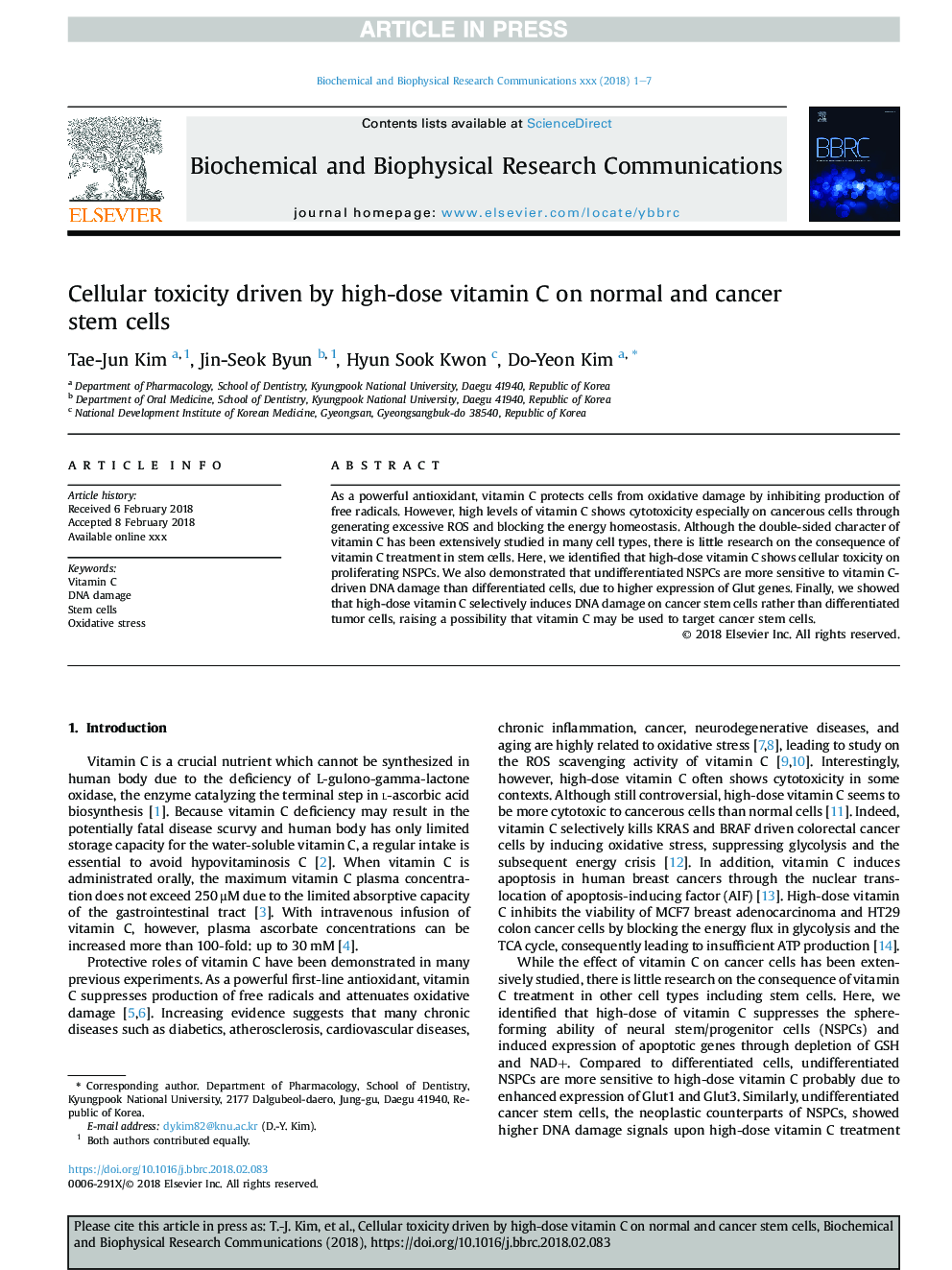| Article ID | Journal | Published Year | Pages | File Type |
|---|---|---|---|---|
| 8294350 | Biochemical and Biophysical Research Communications | 2018 | 7 Pages |
Abstract
As a powerful antioxidant, vitamin C protects cells from oxidative damage by inhibiting production of free radicals. However, high levels of vitamin C shows cytotoxicity especially on cancerous cells through generating excessive ROS and blocking the energy homeostasis. Although the double-sided character of vitamin C has been extensively studied in many cell types, there is little research on the consequence of vitamin C treatment in stem cells. Here, we identified that high-dose vitamin C shows cellular toxicity on proliferating NSPCs. We also demonstrated that undifferentiated NSPCs are more sensitive to vitamin C-driven DNA damage than differentiated cells, due to higher expression of Glut genes. Finally, we showed that high-dose vitamin C selectively induces DNA damage on cancer stem cells rather than differentiated tumor cells, raising a possibility that vitamin C may be used to target cancer stem cells.
Related Topics
Life Sciences
Biochemistry, Genetics and Molecular Biology
Biochemistry
Authors
Tae-Jun Kim, Jin-Seok Byun, Hyun Sook Kwon, Do-Yeon Kim,
